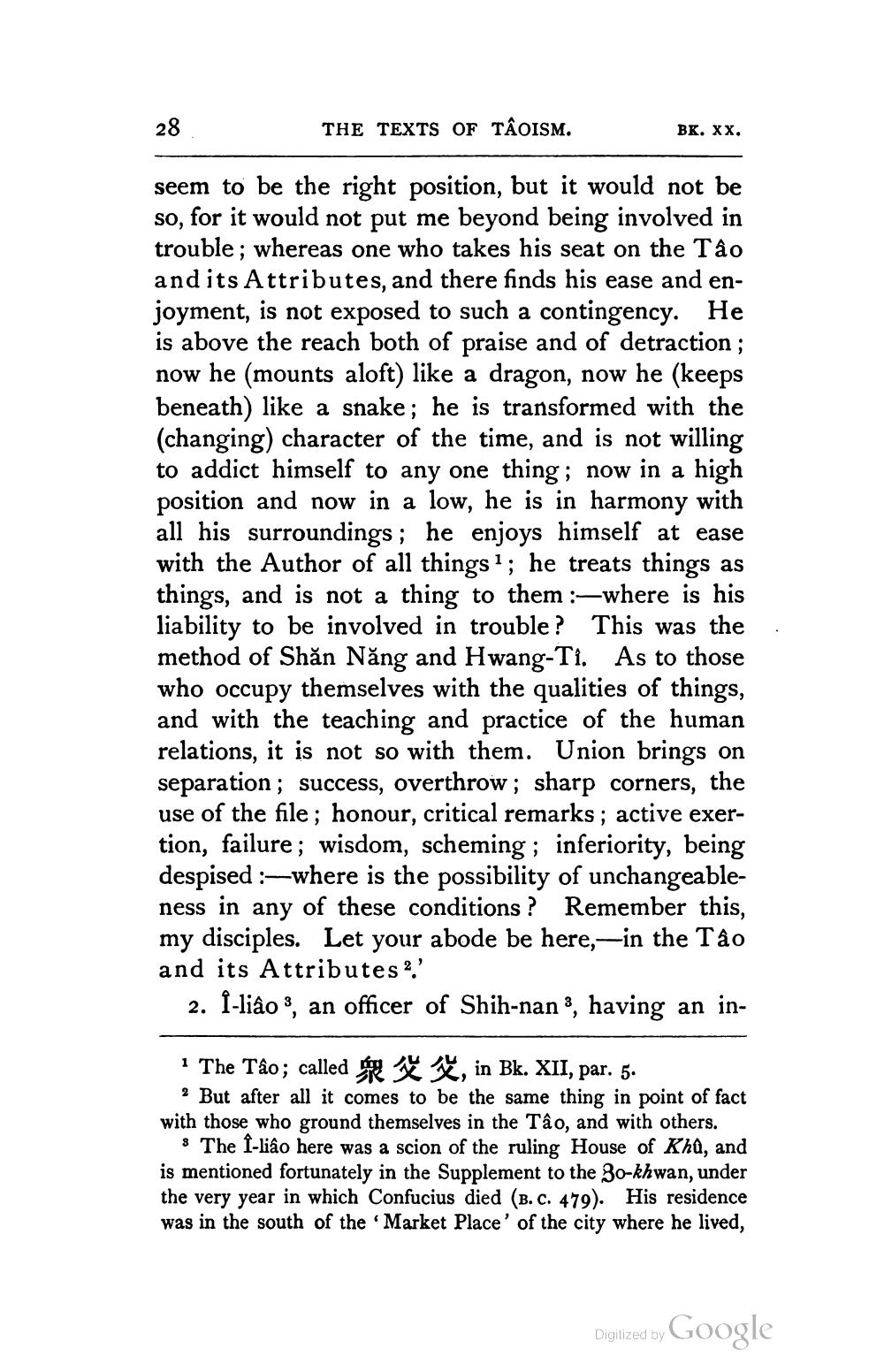________________
28
THE TEXTS OF TAOISM.
seem to be the right position, but it would not be So, for it would not put me beyond being involved in trouble; whereas one who takes his seat on the Tâo and its Attributes, and there finds his ease and enjoyment, is not exposed to such a contingency. He is above the reach both of praise and of detraction; now he (mounts aloft) like a dragon, now he (keeps beneath) like a snake; he is transformed with the (changing) character of the time, and is not willing to addict himself to any one thing; now in a high position and now in a low, he is in harmony with all his surroundings; he enjoys himself at ease with the Author of all things 1; he treats things as things, and is not a thing to them-where is his liability to be involved in trouble? This was the method of Shăn Năng and Hwang-Ti. As to those who occupy themselves with the qualities of things, and with the teaching and practice of the human relations, it is not so with them. Union brings on separation; success, overthrow; sharp corners, the use of the file; honour, critical remarks; active exertion, failure; wisdom, scheming; inferiority, being despised :—where is the possibility of unchangeableness in any of these conditions? Remember this, my disciples. Let your abode be here,-in the Tâo and its Attributes 2.'
2. Î-liâo, an officer of Shih-nan3, having an in
BK. XX.
1 The Tâo; called, in Bk. XII, par. 5.
2 But after all it comes to be the same thing in point of fact with those who ground themselves in the Tâo, and with others.
The Î-liâo here was a scion of the ruling House of Khû, and is mentioned fortunately in the Supplement to the 30-khwan, under the very year in which Confucius died (B. c. 479). His residence was in the south of the Market Place' of the city where he lived,
Digitized by Google




